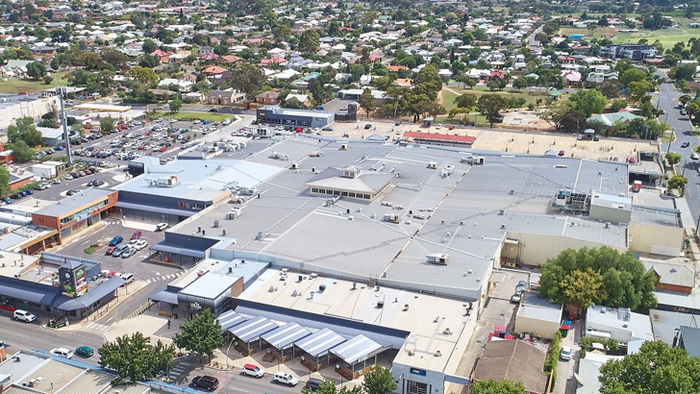How to invest in commercial property through REITs
By Chris Batchelor
Key statistics: ASX: ABP
Closing share price 07.08.18: $3.735
52-week high: $4.260
52-week low: $3.220
Most recent dividend: 9c
Annual dividend yield: 4.8%
Franking: 0%
When will the bull market in equities end?
Bull markets don't last forever and this one has now been running for 10 years.
With equities hitting record highs some market analysts are getting nervous.
Add to that the sceptre of the US yield curve almost flat and looking like it may invert.
An inverted yield curve means long-term interest rates such as 10-year government bonds are lower than short -term interest rates.
This is the opposite of the normal situation where investors would expect to receive a higher return for a longer term investment, and is often a precursor to an economic downturn.
In addition the US Federal and European Central Bank have turned off the liquidity they have been pumping into the markets which was arguably keeping prices elevated.
Picking the moment when a market will turn is notoriously difficult, and the market may continue to thrive for years to come, but a correction, or even a bear market, will eventually come and there are a number of indicators suggesting that the risks are now heightened.
Whilst it would not be prudent to ditch shares completely, a gentle shift in portfolio make up towards more defensive stocks may prove wise.
One area that may provide some stability for a portfolio is property, accessed via real estate investment trusts (REITs).
Right now, the residential property market has gone over a crest and we are seeing small declines in housing prices. A well-diversified portfolio of primarily commercial properties may be a better option.
One REIT that meets this description is Abacus Property Group (ABP).
The portfolio is spread across retail, office and industrial properties and also includes a large portfolio of self-storage facility properties in addition to a portfolio of residential developments.
The portfolio includes properties across the eastern states, as well as South Australia and New Zealand.
Abacus has been growing profits strongly over recent years.
This continued last week with the announcement that underlying profit for the year ending June 30, 2018 would be in the range of $181 to $184 million, a considerable upgrade from the half year results in February when the full year result was projected to be about $155 million.
A strength to the Abacus business is the diversity of income sources. This provides downside protection in the event that one segment underperforms.
Income sources include rental income from a diverse book of properties, hotel income, finance income and income from the sale of development properties.
So how does it stack up as a defensive investment?
It is important to review each investment in terms of your overall portfolio. Does it concentrate your risk or diversify it? If the answer is diversify it then the second imperative to reduce risk is to ensure you do not overpay for the security.
At present Abacus is trading on a dividend yield of 4.75% and a forecast PE ratio of 11.9 (based on underlying forecast profits for 2018). These are fairly low valuation levels so provided Abacus can maintain a similar level of earnings the risk of a substantial share price fall is reduced.
Another element to risk is the exposure to debt. At the half year results the net debt to equity ratio was 28% and this was reduced further with the proceeds from the recent sale of one asset and the sale of 50% of two others.
In April this year co-founder and managing director Frank Wolf suddenly passed away.
This was very sad for all concerned but fortunately for shareholder a succession plan was already in place with Steven Sewell being groomed for Wolf's planned retirement in July.
Whilst an investment in a property investment portfolio with development and management components could never be considered low risk, as a defensive play in the light of potential headwinds in global equity markets, it may be worthy of consideration.
The author's related parties have holdings in ABP
Get stories like this in our newsletters.


